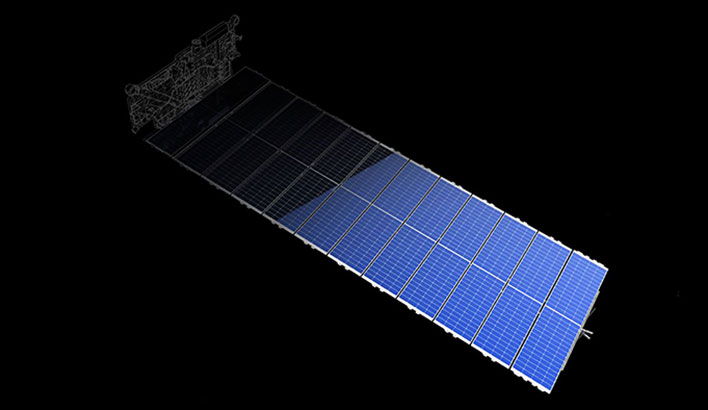SpaceX Starlink Satellite Internet Beta Priced At $99/Month For Up To 150Mbps Speeds

Starlink won't come cheap, however, as according to the emails that were sent out, it will cost $99/month during the beta period. Considering that some people in metropolitan areas can get gigabit internet for that price or less, Starlink might at first seem a bit overpriced. However, Starlink isn't aimed at people that have access to traditional cable or fiber service; it's instead being marketed to customers that have no viable optionsfor high-speed internet.
The $99/month rate will get you internet speeds that range from 50Mbps to 150Mbps with latency coming in at 20 to 40ms. However, given that this is considered a limited beta and that SpaceX's Starlink constellation of satellites haven't all been positioned into their final operating orbit, "some interruptions in connectivity [are] to be expected" for testers.
Not surprisingly, SpaceX is calling its offering the "Better Than Nothing Beta" test, which is an apt description for many underserved Americans that would kill to have access to these broadband speeds. However, we should warn anyone that is thinking about signing up for the beta -- if you are selected – that not only will you pay $99/month, but you'll also be on the hook for the $499 Starlink "phased-array user terminal" that includes a WiFi router and necessary hardware to tap into the satellite constellation.
But for those that take the plunge, the good news -- besides actually having access to decent internet -- is that the Starlink will only get better as more satellites are put into orbit. "As we launch more satellites, install more ground stations and improve our networking software, data speed, latency and uptime will improve dramatically," the Starlink Team writes in the email. "For latency, we expect to achieve 16s to 19ms by Summer 2021."
Eventually, Starlink will expand to include over 12,000 satellites in orbit around the Earth. At the moment, there are roughly 900 satellite that have been actively deployed. However, the fast-expanding constellation is facing backlash from astronomers who say that it is fundamentally changing the way that they observe and record data about the night sky.

